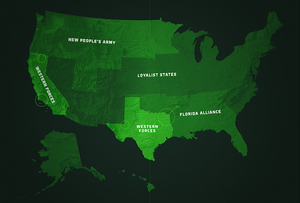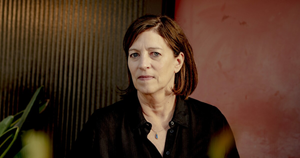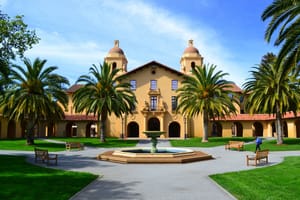This week, Columbia, Yale, and NYU have seen massive anti-Israel protests that have rocked their campuses, resulting in dozens of arrests and the cancellation of classes. Mere months ago, Harvard and UPenn ousted their presidents after refusing to condemn antisemitism and failing to protect Jewish students. Columbia's president may be next to go as the university’s classes go hybrid, Israeli professors are locked out of campus, and mob rule seems to have taken over—all at a school known for its robust Jewish community.
This debacle at Columbia University, most of all, epitomizes the rapid decline of the Ivy League’s prestige as the home of America’s preeminent universities.
Although Stanford has faced similar accusations of antisemitism, the situation on campus simply is not that bad compared to our peer institutions out East. We—two Jewish Stanford students—urge you, the admitted Stanford Class of 2028, to choose Stanford over those East Coast schools ravaged by mob rule.
Stanford’s administration is far more reasonable and proactive in maintaining a serious academic environment where all students, Jewish or not, generally feel safe, and free discourse is openly encouraged. Take, for instance, the case of former instructor Ameer Loggins who, days after October 7th, separated Jewish and Israeli students from the rest of his class and made them stand in the corner. He was suspended just days later.
Yes, Stanford struggled to immediately condemn the actions of Hamas on October 7th. However, after the Harvard and Penn ex-presidents, Claudine Gay and Liz Magill, were grilled about the boundary between free speech and hate speech by Representative Elise Stefanik, Stanford’s administration firmly stated that calling for a genocide violates free speech rules.
Though Stanford’s White Plaza housed a 120-day encampment, self-styled the “Sit-in to Stop Genocide,” the protests never reached a point that caused students to feel unsafe walking through campus (the sit-in was easily avoidable) or to lead the administration to cancel classes. With better weather than New York City, most Stanford students would seem to rather spend their time outside on the grass than in a tent.
In a recent interview with the Review, Interim President Richard Saller took a measured tone, emphasizing his support for Chicago-style free speech policies and institutional neutrality.
And earlier this month, the University announced that Jon Levin, a Jewish economist and current Dean of the Graduate School of Business, would become the next Stanford president. Levin notably funded the controversial Academic Freedom Conference and the Classical Liberalism Initiative at the GSB, which brings right-of-center speakers to campus amidst student backlash.
At the same time, centers of Jewish life on campus like Hillel, Chabad, and AEPi are booming, and provide a home to Jewish students, no matter where they are politically.
While pro-Palestine protests have also characterized our campus, the violent protests at Ivy League schools such as Columbia, Harvard, and Yale that have canceled classes and threatened the safety of their students have failed to take a hold at Stanford. Though some Jews at Stanford have faced antisemitic speech and even harassment on and since October 7, the situation here is not as bad as on Ivy League campuses. For most, campus politics are opt-in, not opt-out.
Though imperfect in its handling of free speech, as the Review has extensively covered, the University’s response to disruptive protests during admit weekend and the recent letter to the Class of 2028 give us hope as to how the University will handle campus speech going forward.
Whether you’re Jewish or not, Stanford handles its campus “proxy war” much better than its many peers on the East Coast. In this time of chaos: choose Stanford.









